Pet care & safety
Can Pregnant Women Be Around Cats & Dogs Safely?

Resource Guarding: Tips to Stop Food Aggression in Dogs

What to Do for Dog Allergies: Tips for Dealing With Dog Allergies

Fecal Test Importance & Collecting Dog Fecal Sample Correctly

Should You Microchip Your Dog or Cat?
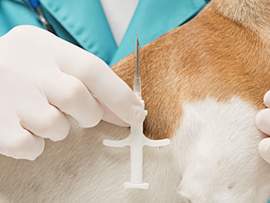
Puppy Essentials: New Puppy Checklist & Starter Kit

How to Make a Dog Throw Up: What to Do If Your Dog Eats Something Toxic

Dog Bee Sting: Signs & Treatment for Dogs Stung by Bees

How Much Does a Vet Visit Cost? Vet Check-Up Cost & Emergency Visit Pricing

Rabies Vaccine Cost for Dogs: How Much is a Rabies Shot for a Dog?
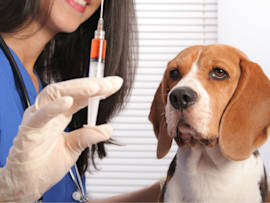
Pain Meds for Dogs: What Can I Give My Dog for Pain Relief?

My Dog's Upset Stomach: What Can I Give my Dog for an Upset Stomach?

Can Dogs Have Bananas? Are Bananas Good for Dogs

Can Dogs Eat Mangoes: Is Mango Good for Dogs?

Worms in Dogs: The Signs of Worms in Dog Poop

Can Dogs Have Milk? Benefits and Risks of Milk for Dogs

How Much Does a German Shepherd Cost?

Dog Dental Cleaning Cost: How Much is it to Clean Your Dog’s Teeth?

The First Day with a New Puppy: Key Tips for the First 24-72 Hours with a Puppy

Why Is My Dog So Itchy? Understanding Dog Itchy Skin and Finding Relief

15 Plants Toxic to Cats and Dogs

Can Dogs Eat Raw Beef: Can You Feed Your Dogs Raw Diet?

The Guide to Dog Calories per Day: How Many Calories Should Your Pet Consume Daily?

Dog & Cat Cone Alternatives: Beyond the Cone of Shame

What Can't Dogs Eat: Understanding Toxic Foods for Dogs

Can Dogs Have Tomatoes: Are Tomatoes Safe for Dogs to Eat?

Prescription Pet Foods: 6 Myths About Therapeutic Diets

Can Dogs Have Almonds? Almonds & Dogs
Xylitol Poisoning in Dogs: Xylitol Toxicity, Symptoms & Prevention
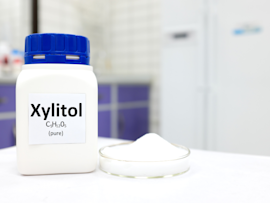
Which Essential Oils Are Safe for Cats? Are Lavender & Lemon Oil Safe?

Dog Food Transition: Changing Dog Food & How Long Dogs Need to Adjust
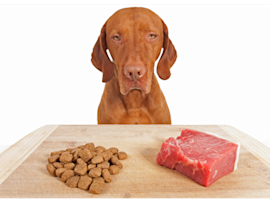
Understanding Dog Tooth Decay Stages

The Rabies Vaccine: How Much is a Rabies Shot for Cats?
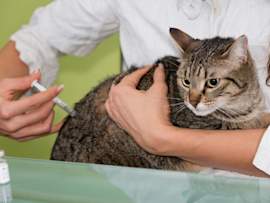
Is Cat Food Bad for Dogs: Dog Food vs Cat Food Differences

Can Dogs Eat Stink Bugs? What to Do if Your Dog Ate a Stink Bug

Can You Put Neosporin on a Dog? Usage of Neosporin on Dogs & Its Safety

Can Dogs Have Pepto Bismol? Your Guide to Pepto Bismol in Dogs

Can Dogs Have Hot Dogs? When Hot Dogs are Bad for Your Pup

How to Bathe Your Dog: A Step-by-Step Guide

Can Dogs Have Pica? Understanding Pica in Dogs

Why do Dogs Like Sticking Their Head Out the Window?

Is Peanut Butter Good for Dogs? Benefits, Risks, & Safe Peanut Butter Options

Are Rawhides Bad for Dogs? Looking at Rawhide & Dogs

Is Catnip Bad for Dogs? What Does Catnip do to Dogs?
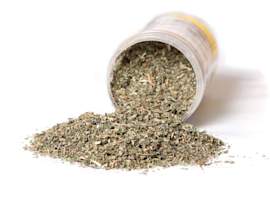
How Much Should I Feed My Cat? Cat Feeding Chart and Tips
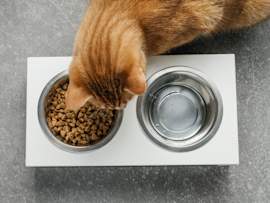
Why Does My Cat Chew on Plastic? The Mystery of Feline Plastic Chewing Obsessions

Kitten Vaccine Schedule: Kitten Shots & Their Costs
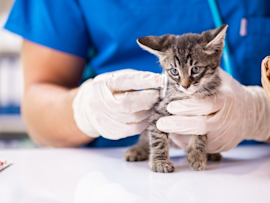
Can Dogs Have Onions? Risks & Toxicity of Onions for Dogs

How to Induce Vomiting in Cats: The Dangers of Making Your Cat Throw Up

Blood in Dog’s Urine: Why is my Dog Peeing Blood?

Laser Declawing: Cost of Laser Declawing Compared to Traditional Declawing

Dogs & Blue Green Algae: Algae Poisioning & Symptoms in Dogs

Dog Poop Dilemmas: Understanding Normal Dog Poop & Frequency

Do Pugs Eyes Pop Out? Pug Eye Problems

Can Dogs Have Green Beans? Raw, Canned, and String Beans for Dogs

How to Trim Dog Nails: Essential Guide to Dog Nail Trimming Techniques
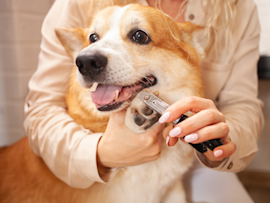
Can Dogs Eat Potatoes? Are Potatoes Good for Dogs?

Is Coconut Oil Good for Dogs and Cats? Uncovering the Uses of Coconut Oil for Pets

Can Dogs Have Oranges: Exploring Citrus Fruits for Dogs

Can Dogs Eat Blueberries: Are Blueberries Good for Dogs?

Fire Ant Bites on Dogs: Prevention & Treatment for Dogs Bit by Fire Ants

How Long Are Dogs in Heat: Dog Heat Cycle Duration & Signs

How Much is Cat Teeth Cleaning?

What is the Friendliest Cat Breed? Best Friendly Feline Options

Hypoallergenic Dogs: Choosing the Right Breed for You

How Much Do Cats Cost: Kitten & Adult Cat Expenses

Cost of Microchipping Dog: A Price Guide to Affordable Options For Keeping Your Dog Safe

How to Remove a Tick: What to do if Your Dog has a Tick
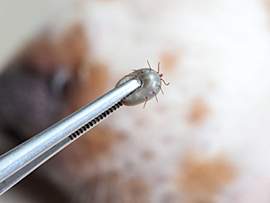
How Long Do Puppies Sleep: Puppy Sleep Patterns by Age

25 Lb Dog Breeds: The Best Dog Breeds for Apartment Living

How to Brush Your Dog or Cat's Teeth

11 Tips for Including Pets in Your Emergency Plan

Essential Oils and Dogs: Are they safe and effective?

Drug Recommendations for Car Sickness and Nausea Control in Dogs

Insulated Winter Cat Shelter DIY Tips

Pets and House Fires

Pet Poison Control Helpline 101

The Great Feeding Debate: Free Versus Scheduled Feeding

DIY Pet Care Remedy Dos and Don’ts

Seven Kinds of Smelly Pets (And How to Tone Down Their Stink)

Tips for Coping with Incontinent Pets
